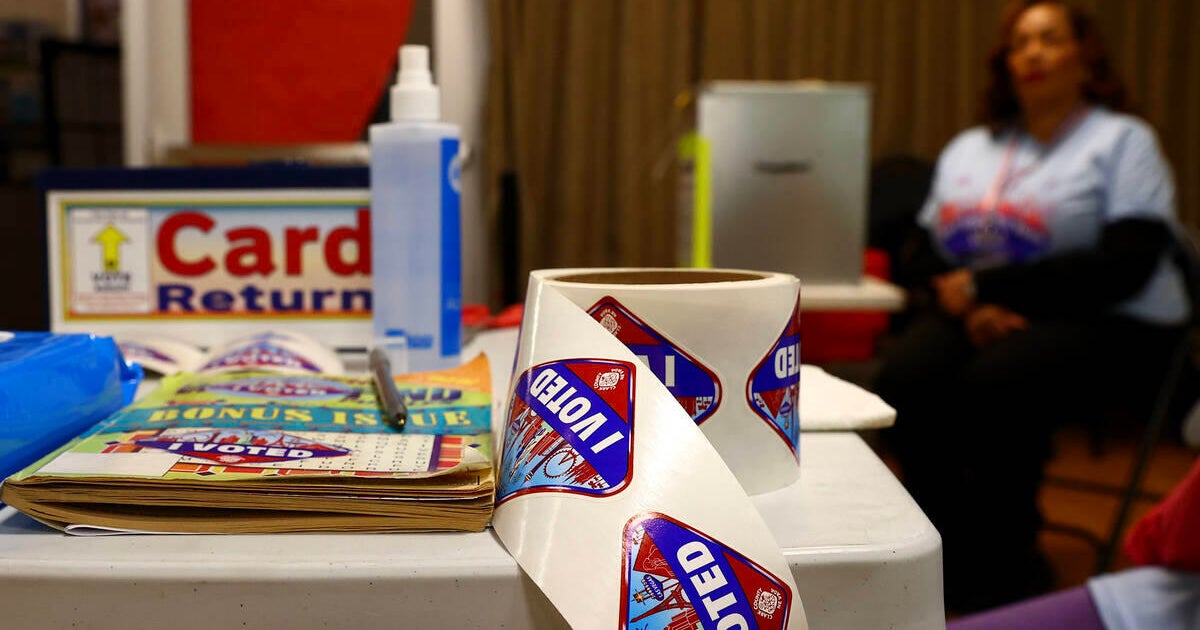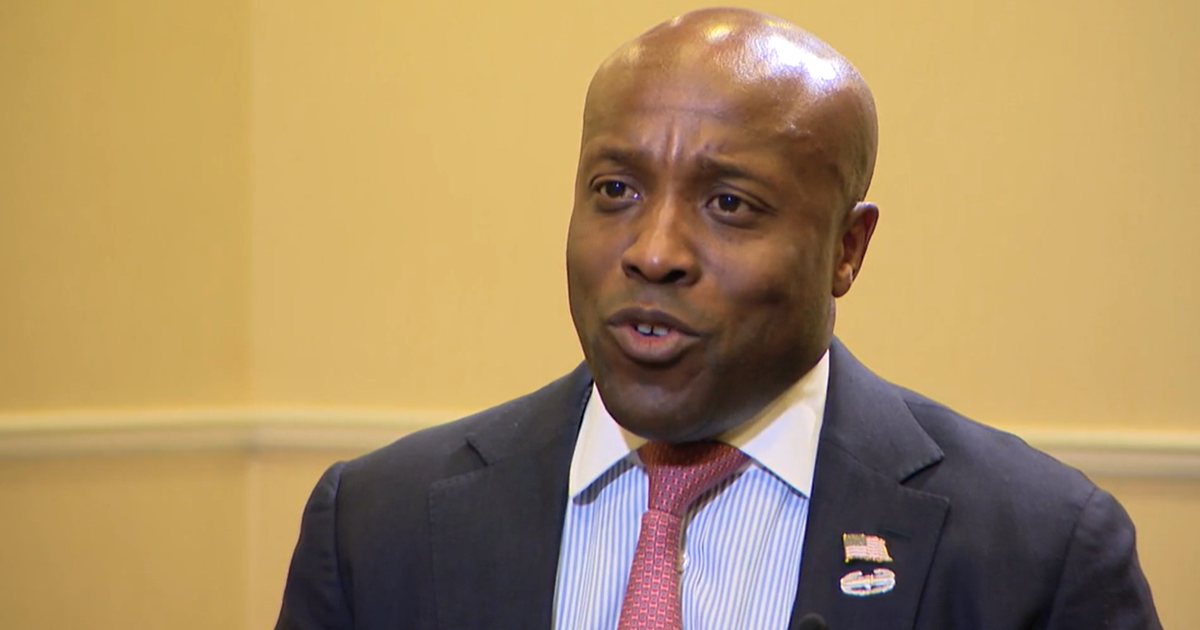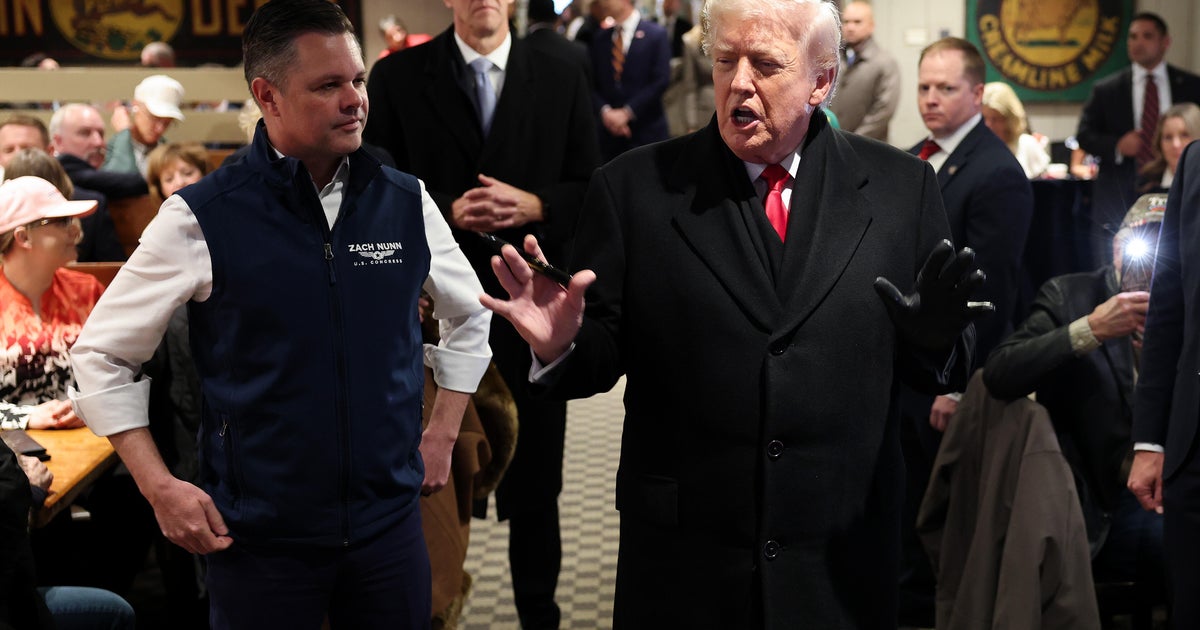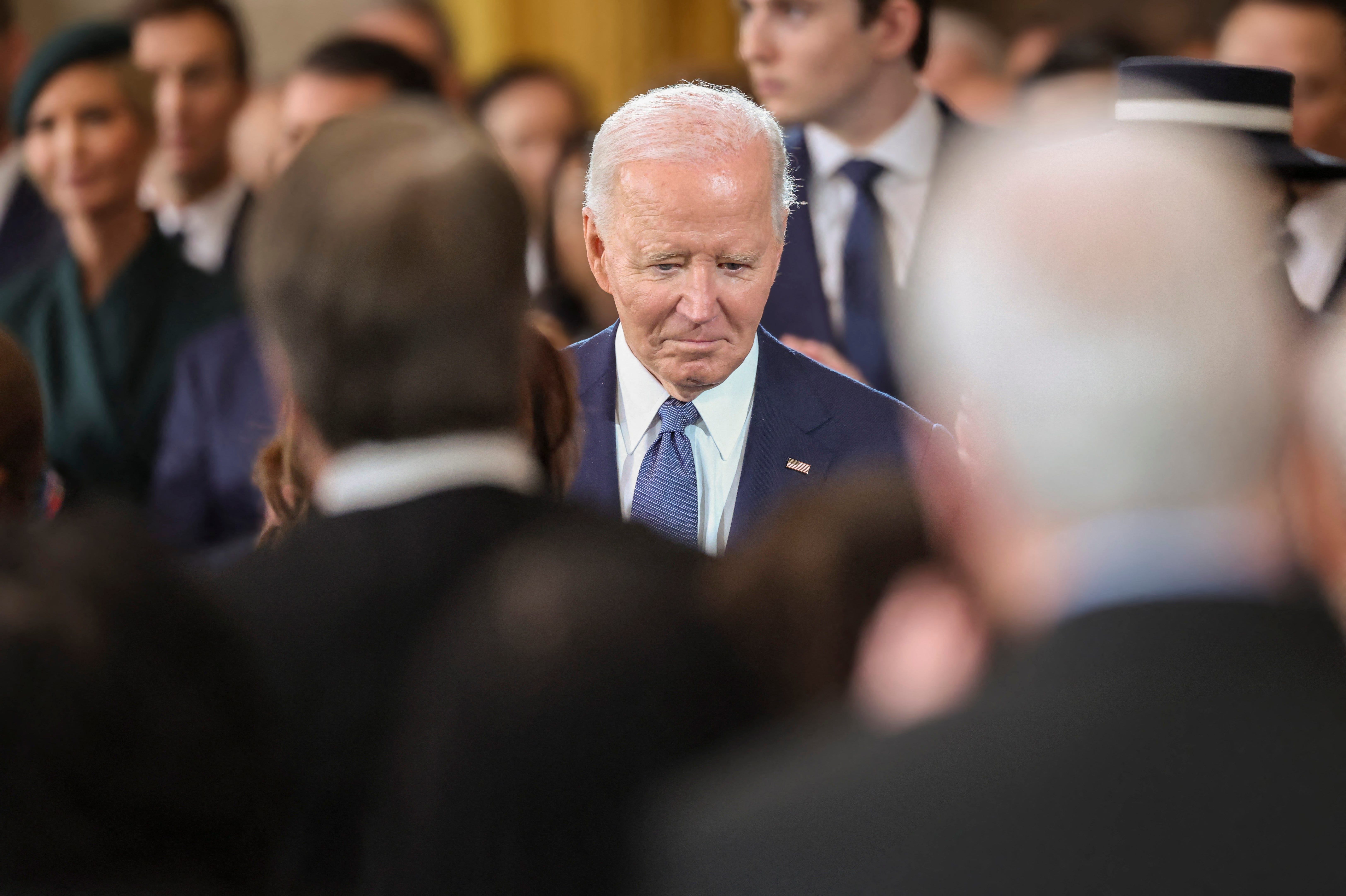Wisconsin primary results: Joe Biden wins in-person vote held amid coronavirus
Joe Biden, the presumptive Democratic nominee, will win the Wisconsin primary that was held on April 7, CBS News projects. The in-person primary was held Tuesday, one day before Bernie Sanders suspended his campaign.
Wisconsin has 84 pledged delegates, and as of 7 p.m., BIden received 42 delegates and Sanders 13. That puts Biden at 1,252 delegates of the 1,991 needed for the nomination. Sanders on Monday endorsed Biden.
Sanders won the Wisconsin primary in 2016, and the state was one of three key swing states that flipped to President Trump.
Also on the ballot in Wisconsin was a hotly-contested Supreme Court race and hundreds of local elections. In the closely-watched race for state Supreme Court, Dane County Circuit Judge Jill Karofsky has defeated incumbent Justice Dan Kelly to win a 10-year seat. The race was officially nonpartisan but Democrats backed Karofsky and Republicans supported Kelly, CBS Madison, Wisconsin affiliate WISC reports. Karofsky's victory shrinks the conservative majority on the court to 4-3 and gives liberals a chance to take control of the court the next time a seat comes up in 2023.
Voters on Tuesday tried to maintain social distancing while waiting in long lines and poll workers wore masks for protection.
The controversial decision to hold the election amid the coronavirus pandemic has been expected to result in legal challenges. On Monday, a group of Wisconsin voters filed a federal lawsuit asking for a full or partial revote. The lawsuit argues that holding the election last week was an attempt to "disenfranchise thousands of voters in the Spring Election."
The lawsuit calls for either a full revote or allowing people to cast a ballot if they weren't able to vote last week, including if it was due to health concerns or not receiving an absentee ballot in time. It was filed before election results were posted on Monday.
"This action is not partisan (about winners and losers) but rather a challenge to the fundamental unfairness of the Legislative Defendants' intentional act to force voters into an unreasonable, unfair, and unconstitutional choice between (a) exercising their fundamental right to vote in an in-person election during a pandemic; and (b) forgoing their right to vote in order to preserve their life and health and the lives and health of those close to them and the public overall," the lawsuit says.
Wisconsin went ahead with in-person voting on April 7 after a flurry of legal challenges and political maneuvers to try to alter or delay the election. On the eve of the election, the United States Supreme Court curtailed a lower court's ruling to extend the deadline for returning absentee ballots until April 13. The Supreme Court ruling required absentee ballots be returned in person by 9:00 pm ET on Election Day or to be postmarked by April 7 in order to be counted.
Many of the plaintiffs in the lawsuit requested absentee ballots, but didn't receive them by Election Day. Most of the plaintiffs, even if they had been planning to vote in person, said that they decided not to vote for health concerns. The virus led to a shortage of poll workers and cities used fewer polling locations which caused bigger crowds. Milwaukee only operated 5 voting centers compared to its usual 180.
The lawsuit features a sample of voters who had issues with their absentee ballots. Nearly 1.3 million voters requested absentee ballots and almost 1.1 million were returned as of Monday morning, according to the Wisconsin Elections Commission (WEC). The record number of requests strained the system and there were widespread reports from Wisconsinites who never received their ballots, including from some who requested their ballot weeks ago.
Married couple Marquez Guzman and Kari Hanson, who live in Milwaukee and are not part of the lawsuit, asked for their ballots in March and again on April 3. Their ballots didn't come until two days after the election, but they decided not to vote because Kari is pregnant and the couple didn't want to risk her getting sick.
"It feels like I was definitely cheated out of participating in the election," Guzman told CBS News. "I almost wish that it wouldn't have shown up at all. The fact that it did show up, we were like 'what do we do with this? Do we burn it? Do we make some sort of artwork out of it?'"
Senators Tammy Baldwin, a Democrat, and Ron Johnson, a Republican, wrote a letter asking the U.S. Postal Service (USPS) Inspector General to investigate "numerous reports of absentee ballots not being delivered in a timely manner."
"We have been made aware of potential issues with absentee ballots in Wisconsin and are currently conducting an investigation into the claims," a USPS spokesperson said in a statement. "At this time we do not have additional information to provide on this issue. It is important to note that throughout every election cycle, the U.S. Postal Service works with state and local election officials to ensure the timely delivery of Election Mail."
In a call with reporters earlier on Monday, Wisconsin Democratic Party chair Ben Wikler said "every legal option is on the table" for how the state Democratic Party may pursue future battles in court "so that voters' voices are heard." Democratic National Committee chair Tom Perez said the election featured "voter suppression on steroids" because people had to decide between health and their right to vote.
But it wasn't just an issue of ballots getting to voters on time. There were also questions from local clerks about how to handle ballots that may have been mailed on April 7, but lacked a clear postmark indicating that's the date they were sent.
On Friday, the state Elections Commission met to discuss how to handle "hundreds of examples" of ballots from local clerks that didn't have a postmark date on or before April 7, but "may have been in the possession of the U.S. Postal Service (USPS) by that date." A draft memo from the WEC featured examples of ballots arriving without postmark dates, dates that were illegible or postmark stamps that said "APR 2020," but lacked a specific date.





